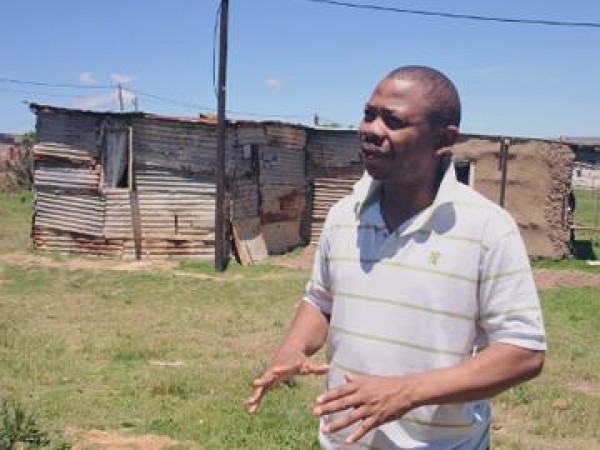Activist to get compensated following police assault
Ayanda Kota was beaten while in custody in Grahamstown police station
The Minister of Police has agreed to financially compensate Ayanda Kota, the victim of an assault by police, for the damages he incurred as a result of the brutality.
Kota, the current chairperson of the Unemployed People’s Movement (UPM), was assaulted by police while in custody in the Grahamstown police station in 2012.
A statement released by UPM yesterday said the assault took place after an academic from Rhodes University accused Kota of theft because he misplaced and thus could not return two books she had loaned to him, despite his written affirmation that he would replace the books.
Richard Pithouse, a professor at Rhodes University who witnessed the assault, said the episode is a clear example of unacceptable police brutality.
“They just started hitting him. A whole group of them just assaulted him,” he said. “Cops were calling other cops to come and see the ‘newsmaker’ of the year.”
With the help of the Socio-Economic Rights Institute of South Africa, Kota sued the South African Police Service (Saps). He learned last week that the Minister of Police had decided to offer him R120,000 in damages after conceding that the assault did indeed take place, the statement said.
“At a time when police brutality is on the news at university campuses around the country the Unemployed People’s Movement welcomes this concession,” the statement said. “We continue to oppose police brutality and to struggle for a socialist alternative to the crisis engulfing our country.”
Kota said he sees the settlement as a victory—and a long-awaited one.
“I am very happy and excited to be vindicated,” Kota said. “[Poor people] are not violent criminals.”
Pithouse said, though, that while the financial compensation is a form of vindication, it doesn’t necessarily encourage police to change their behavior.
“I’m not sure that it’s a solution,” he said. “I think we need to think much more seriously about how we take on the culture of brutality in this country.”
Kota said he isn’t too surprised that he and his lawyers managed to bring him justice.
“I believe we had a strong case.”
GroundUp is awaiting comment from the Ministry of Police.
Support independent journalism
Donate using Payfast

Don't miss out on the latest news
We respect your privacy, and promise we won't spam you.
Next: WSU student arrested as protests continue
Previous: All-girls clubs get off the ground in KwaZulu-Natal
© 2016 GroundUp. 
This article is licensed under a Creative Commons Attribution-NoDerivatives 4.0 International License.
You may republish this article, so long as you credit the authors and GroundUp, and do not change the text. Please include a link back to the original article.

